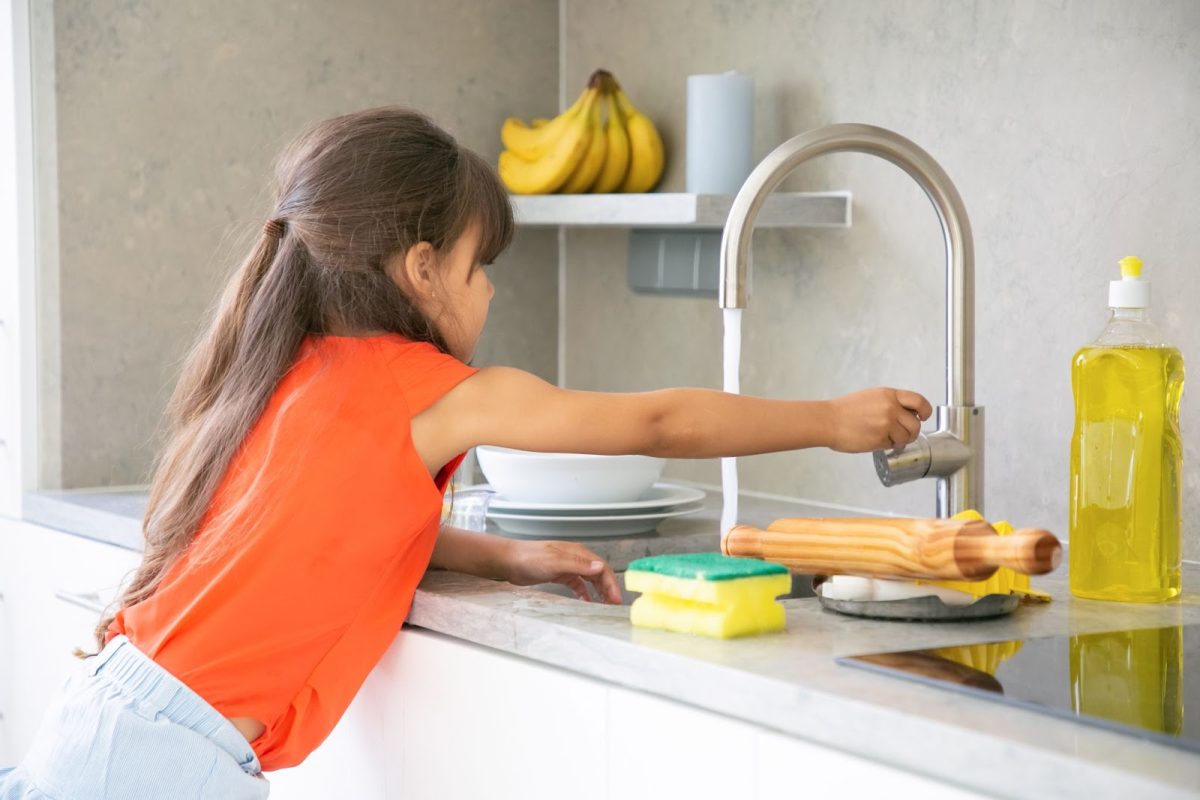
September 5, 2025

It’s easy to think of chores as just a way to keep the household running. But for children between the ages of 4 and 12, these everyday tasks can offer something much bigger – a chance to build independence, confidence, and even better academic habits.
At Jan & Elly, we’ve always believed that learning isn’t limited to what happens in the classroom. Independence grows from experiences – small moments where children are trusted, challenged, and supported. And yes, that can start with sweeping the floor or packing a school bag.
Before diving into chore lists, it’s important to look at why life skills are more than just helpful; they’re essential. Teaching life skills to children early on helps shape how they see themselves and the world around them so they grow into thoughtful, capable individuals. Chores provide opportunities for them to:
When children are given tasks they can manage, they start to see themselves as decision-makers. Whether it’s choosing what to wear, clearing their dishes, or helping to feed a pet, these small choices build a sense of ownership. They learn that their actions matter and that they are trusted, which is a powerful message at any age.
Learning to manage simple chores introduces the basics of time awareness. A child who waters the plants every morning or packs their school bag the night before starts to build habits around routine and planning. These habits help them feel more in control of their day, which can ease stress and reduce dependence on adults for reminders.
Spilling water while watering a plant or folding laundry the wrong way may seem minor, but these are the building blocks of learning. When children are allowed to try, fail, and try again in a low-stakes environment, they develop the courage to take on bigger challenges. They learn to view mistakes as lessons versus setbacks.
Mastering a task, even something as small as tying shoelaces or organising a shelf, gives children a clear sense of progress. They begin to believe they can figure things out, even if it takes a few tries. Over time, this sense of achievement feeds into resilience and a “can-do” attitude – traits that will serve them well in school and in life.
When nurtured consistently, these skills do more than make things easier at home. They lay the groundwork for strong problem-solving abilities, better emotional regulation, and a positive approach to learning.

Children thrive when they feel capable. But giving them too much responsibility too soon can be overwhelming. Here’s a look at chores by age group that gently encourage self-reliance without pushing too far.
At this age, children love being involved, especially if it means doing something grown-up. So keep tasks simple and visual.
The goal isn’t perfection. It’s participation. Praise effort, not results.
Now children can begin handling multi-step tasks and taking more ownership.
These tasks help children feel responsible while still under light parental guidance.
Older children can take on chores that involve planning, consistency, and accountability.
These life skills teach them not only how to manage tasks, but how to manage time and priorities.
It might surprise some parents, but everyday chores can quietly influence a child’s academic growth. Household responsibilities aren’t just about tidiness – they help children develop executive function: the brain’s ability to plan, stay focused, and manage time effectively.
A child who gets dressed independently or packs their school bag each night is practising the same skills they’ll use in school – organisation, follow-through, and time awareness. These small, repeated actions help them build routines and confidence.
Tasks like folding laundry or setting the table may seem minor, but they teach:
When children regularly complete tasks, they start to see themselves as capable and trusted. When they forget, they experience manageable consequences, but without the high stakes.
To make chores feel like a learning opportunity instead of a punishment, consider three key approaches:
At Jan & Elly, we support a learning approach that includes both academic and life skills. Reading, writing, and communication are key, but so is a sense of self. By teaching kids how to take ownership of their environment, we’re also helping them take ownership of their learning.
Responsibility, when taught with patience and encouragement, turns into self-discipline. And that’s something every parent wants for their child not just at home or in school, but throughout life.
Independence doesn’t come overnight. But with small, consistent steps – like age-appropriate chores and positive reinforcement – you’ll start to see your child grow into a confident, capable learner.
So next time your child asks to help with dinner or fold the laundry, say yes. You’re not just ticking off a to-do list. You’re building life skills that last.
